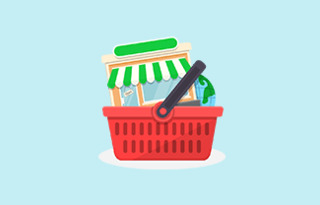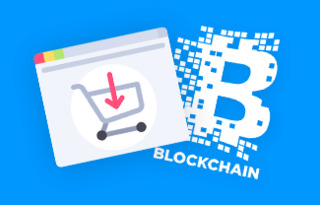The growth of the e-commerce market has reached dramatic speed and scale. We can now share our apartments on Airbnb, our travel recommendations on TripAdvisor, and our money on Kickstarter. And we owe all this to the collaborative economy pioneers who took a wager on the value of building trust.
It's striking just how global an influence the collaborative economy has gained over our way of thinking. For a long time, customers' trust was sought via huge investments in gleaming exteriors. Banks hired the best architects to build soaring marble columns that would project an image of solidity into the public eye. Brands poured millions in the few seconds of a TV ad, as if to say, "Look! If we can spend enormous amounts of money on marketing, we must be reliable and trustworthy!" And it worked. Trust could literally be bought, and those who could afford to pay would be trusted, whether or not this was deserved.
But in the 20th century, technological progress transformed the consumer economy from a singletrack road into a multi-lane highway - and relationships between companies and consumers became much more complex and multifaceted.
Now, under the watchful gaze of the online community, you can't afford to neglect quality of user experience for even a moment: the smallest reputational fail can bring your billion-dollar project to its knees.
So it is that trust must now be considered your most precious asset - and in this article we'll look at how to build up high-trust relationships on your marketplace in these times of misinformation, fake news, and personal data theft.
What trust means for e-commerce - and why it's a vital component of business success

Lack of trust is the leading obstacle for online marketplaces, with recent research by CIGI-Ipsos showing that 52% of consumers with Internet access are put off online shopping by security concerns. Many who could shop online still hold back on account of security and privacy - and with other barriers to growth now broken, this one has grown in significance.
If both buyers and sellers are not confident that their deals are secure, then deals will simply not be made - making trust a core element in the successful launch, development, and ongoing success of any marketplace.
There's a common pattern in the success stories of the world's biggest marketplaces: from Amazon to Uber, Airbnb to TaskRabbit, each one placed a premium on creating an environment where users could feel secure. What they also have in common is that no matter how good a system they've already built, they never stop improving.
When we're letting strangers into our homes to sleep in our beds or look after our children, we have to feel assured that risks have been driven down to the absolute minimum. Let's be clear: why should anyone spend money on a platform that might place them in danger?
Each party to a transaction should be able to expect clarity and reliability - and ensuring that these expectations are met is the responsibility of you, the marketplace owner. Creating an environment of trust requires investment - but it also pays dividends.
Inside customers' fears - or, why you're not trusted

Trying to choose between a seller-centered and buyer-centered business model at the outset of your marketplace journey is the classic 'chicken and egg' situation - and ultimately unwinnable. Instead, you should recognize the equal importance of the people on both sides of the equation.
Even big marketplace players must continually face the problem of customers' fear - which comes in many forms, all of them equally damaging. Your job is to focus on winning customers' trust for your platform: and the only way to do this is to create real solutions that protect your users and minimize the risks they face in the course of doing business.
Of course, there are different strategies to choose from - but before you can know which is right for your two-sided marketplace, you need to understand all the risks, both real and imaginary. Only once they've identified and eliminated every user experience weak point can marketplace owners really aspire to build a sustainable, trust-winning business.
Here are some key things to remember:
- Always identify the worst-case scenario. A late pizza delivery is annoying - but not as bad as a newly-purchased car disappearing in transit. Every company needs a comprehensive safeguarding and verification system to guarantee a seamless deal.
- Transaction size matters. Losing a few bucks when purchasing a t-shirt won't make anyone happy - but the arrival of unscrupulous landlords on a house rental platform can mean holidaymakers losing year-ruining sums of cash. Your business needs systems in place to ensure security on both sides - and to compensate users swiftly if something does go wrong. Airbnb is a leader here, using a deposit system to deliver funds to landlords only once renters have successfully checked in.
- Just who are the users making deals on your site? If you're providing a space for people to provide professional services, then you need to make their competence your concern. Take TaskRabbit: they don't stop at verifying sellers' identities - they also interview them, too.
- Local knowledge is key, because people from different places see things differently. So in one region, sharing a room with strangers may be normal, where in another it would be viewed as odd. Ridesharing platform BlaBlaCar has acknowledged regional differences by adding a female-only option in some markets.
- Trust depends on pre-existing beliefs and prejudices. For example, we know that marketplaces based in developing countries have a harder time building trust than those associated with highly-developed territories - but the difference is less marked for Millenials than it is for older consumers. There will always be a trade-off between trust and inclusivity - Uber's mobile app doesn't allow drivers with a rating under 3 stars to work on the platform. Meanwhile, Airbnb has sought to create a buffer, by giving real estate owners $1 million of insurance to protect their properties from potential damage.
How to win users' trust
Here there are two main strategies, depending on your business model.
- Focus on each individual seller. The preferred approach of companies like Airbnb, TaskRabbit, and Thumbtack, the theory goes that when users have confidence in each and every seller on your platform, they will also trust the platform as a whole.
- Focus on the platform as a whole. Championed by Amazon and Uber, this approach holds that when an online marketplace is reliable and has an efficient means of filtering out unreliable players, users feel safe to make deals there.
Trust-building factors
The building of trust is an equation with many variables - all of which can change during your search for a solution. This means it's not a one-time task, but rather an ongoing precession of decisions. Initial strategies differ from those you'll use once established.
One thing that should be your mantra from the outset, though, is transparency. And to achieve overall transparency, you need to ensure that:
- Everyone is clear about the terms of the deal, including any commission fees
- Listing dates are correct and clearly displayed
- Payment methods are secure and reliable
- A sound personal data policy is in place
- The responsibilities of each party are clearly set out
- Resolution of disputes is fast and impartial
In other words, transparency should be everywhere!
But there's also another problem, often overlooked by entrepreneurs - and this is that for many consumers, an online marketplace is still a new and potentially unnerving environment. As such, remember to give special care to considerations such as...
- transactional emails
- chatbots and customer support
- website notifications
- availability of contact information
- deal tracking via personal accounts
Remember: your business won't just gain trust automatically. Trust has to be built.
Building trust

The precise details of the process you need to go through will naturally depend on the particular nature of your business. For example, consumer goods marketplaces like Amazon generally don't consider it necessary to run police or professional background checks on their traders - but for more 'hands-on' marketplaces like TaskRabbit, such measures are an essential safeguard.
However, some considerations for creating trust apply pretty much across the board - whatever the details of your marketplace. These include...
Setting clear rules
Among your first priorities is to set out clear rules that will govern your platform's operations, and regulate buyers' and sellers' behavior. For example, BlaBlaCar provides a guide describing what makes a good driver and a good passenger - while Airbnb offers similar documents for hosts and guests.
Rules need to be applied fairly, but also enforced rigorously where necessary: the velvet glove of great user care must contain an iron hand that is prepared to issue fines and bans when serious breaches are committed.
Knowing your customer
The identity documents we most trust - such as passports and ID cards - were designed to be used offline. But establishing the real identity of users is essential for many marketplaces - hence the likes of Airbnb obliging hosts to verify themselves via scanned identity documents, and giving them the option to require the same of their guests.
But sometimes it's not enough to simply know that a person is real. The more security-critical the services you facilitate are, the greater the lengths you must go to in understanding the complete background of your users. At the sharp end of the 'know your customer' (KYC) scale, resources to refer to could include:
- national criminal databases
- correctional facility administration records
- sex offender registries
- court documents
- transportation control authorities
Among such 'safety-critical' marketplaces we might include those that deal in freelance workers who visit homes and private properties to deliver housekeeping services. TaskRabbit, a leader in this segment, supplements an extensive application form with background checks and a video interview process.
Mandatory user profile completion
Nothing is scarier than the unknown, and when we feel we are among strangers in a marketplace, we become mistrustful. This lack of a sound foundation for trust can affect the entire marketplace.
User profiles should offer an attractive opportunity for members of your community to tell each other about themselves - but even so, certain fields are likely best made mandatory. On Upwork, this includes a personal photo, with your face clearly visible. You can upload any photo, but if it doesn't match your face during your video interview, your account is likely to be blocked - quickly and irrevocably.
There's clearly a balance to be struck between transparency and privacy, and it's important not to put off new or lightly-invested users by demanding they hand over more information than their level of involvement justifies. Remember: your audience also needs to trust you not to ask for information you don't need.
In traditional, centralized e-commerce, it's easy to check that your website listings match your actual products. But in a marketplace this becomes more difficult, because most of your content is generated by users - meaning you often can't physically check descriptions against inventory. This makes it all the more essential to develop accurate processes for flagging suspicious listings - and highlights the need to come down hard on any seller found to be mis-describing their products. In some cases, advance moderation could be needed.
It's hard to overemphasize the importance of eliminating poor-quality content from your marketplace - especially when it comes to winning the loyalty of undecided customers who may have a number of other viable options to choose from. Meanwhile, don't forget that it's not just the veracity of your listings that users care about. Research by Stanford University has shown that 46% of users consider design to be a major sign of a platform's credibility. No platform can single-handedly fill itself with beautiful and informative content - but you should at least take care of your main page. On Airbnb you can find ads of highly variable quality - but customers arriving for the first time will always initially be confronted with the very cream of the crop.
Ratings

When it comes to deciding where to take the next step in your educational journey, it doesn't take a genius to figure out that an Ivy League university like Harvard or Princeton will offer a superb learning experience. Such institutions have crafted their brands over generations. But if you don't have that sort of time and money available, how do you determine if the latest Udemy course, promising to teach you 'How to create an online marketplace in 10 minutes', is a great deal or a waste of time?
In the end it comes down to the broader question of how to build a peer-to-peer trust online - and for online marketplaces, this often means using a 'reputation' indicator to determine how 'rich' a person is in the currency of trust.
The many factors affecting reputation - which platforms can either use individually, or combine into a single metric - include:
- feedback from other users
- ratings
- achievement badges (like Airbnb's 'Superhost' status)
- duration of membership
Of course, feedback can be bought and ratings can be falsified. Research by Amazon in 2018 concluded that 61% of reviews in its electronics department were fake. But the platform is relentlessly fighting back, closing down loopholes, tightening its requirements for sellers, and permanently blocking those who cheat. On the other hand, service marketplaces with well-designed multi-layer trust systems (like Airbnb and TaskRabbit) have a stronger chance of eliminating such abuse - because the nature of the seller-customer relationship is much more involved than for online malls like Amazon.
Every rating system should include both quantitative and qualitative assessment, with each deal possessing various aspects that can influence final assessments. On Airbnb, you can leave public feedback and additionally rate (from 1 to 5 stars) your communication experience, information accuracy, and location convenience. A flexible, multifaceted rating system like this gives a more precise representation of hosts and guests, letting users highlight individual drawbacks (say, an untidy interior) while remaining generally positive.
Overall, it's best to allow reviews to be left only once a deal has been completed, to minimize the chances of malicious feedback.
Improving customer support performance
A thriving relationship with users is at the core of any marketplace's success - and can only flourish with the help of great customer support. This applies whether a user is making their first tentative purchase, or completing their hundredth transaction.
Most users won't come complaining to you about the fact that your marketplace lacks an online chat, contact form, or telephone helpline. But the presence of these things certainly will make customers feel more comfortable - and lower the chances of their going elsewhere.
Of course, staffing these services is expensive, so it's important to create a comprehensive FAQ to field the most common queries. And don't forget: dissatisfied customers are sadly always louder than happy ones, so invest time in understanding where potential frustrations may arise.
Achieving a reliable payment environment
As a marketplace owner, you're asking customers to send their money out into virtual space before they've seen or touched the thing they're buying. Their trust in your marketplace is all that stands between a successful sale and a lost customer.
Needless to say, this is why your choice of payment method is so important. The right choice is one that can keep users' personal data safe and handle additional security measures like deposits, dispute resolution, and insurance - all while giving users a palpable sense of being in a reliable pair of hands.
And because your duty of care is to both seller and buyer, the technology you choose will need to be able to issue prompt refunds, but also help handle situations where these are being sought fraudulently.
The providers best positioned to smoothly handle your payment process are those specially designed for the rigors of the sharing economy and marketplaces: Stripe Connect and Mangopay are among our favorites.
Taking your interface multilingual
You can have the most trustworthy platform out there - but if you're not speaking your users' language, they won't be able to appreciate the benefits of what you're offering them. Making your marketplace available in the languages your target audiences speak will ensure seamless communication with users, and reduce the likelihood of misunderstandings.
Some marketplace platforms - like Sharetribe and CS-Cart Multivendor - come with out-of-box support for multiple languages, which makes them ideal for launching a multilingual marketplace.
The marketplace community - and it's part in building trust

The sharing economy in general, and marketplaces in particular, have made business more personalized than ever before: relationships that used to be about the dispassionate exchange of products and services have been reinvigorated by the need for trust and loyalty created by this way of doing business.
To quote PriceWaterhouseCoopers 'trust, convenience, and a sense of community are all factors in pushing adoption of the sharing economy forward.'
Marketplace owners have unprecedented opportunities for communication with their customers - and success often depends on using these to their full potential. An enthusiastic community will naturally boost your platform's value, and power its growth.
If you can make people feel involved in something bigger than house renting or dog sitting, you'll have them engaged in whatever it is you're planning next. People are social beings by nature - help them become a part of your community, to make new ties based on trust, and very soon they will become loyal fans of your brand, and drivers of your business.
Blockchain's part in building trust
Among marketplaces, OpenBazaar has attracted attention for accepting cryptocurrencies as a means of payment. The parties to a deal each receive a special 'key' that enables their transaction to be 'signed off' without either having to disclose personal data - and once both have signed, the seller receives their funds.
Using blockchain in this way can eliminate some major trust bottlenecks in marketplace trade - and it's not just upstart marketplaces taking note. Ebay was the world's first online marketplace - but it also quietly became the first to accept cryptocurrency payments, too.
Now, more and more marketplaces are adopting blockchain technology, smart contracts, and crypto payments - making doing business far safer for both sellers and buyers. Greater safety increases trust and encourages trade - and the buzz around this new technology is also a great way of generating interest in your marketplace.
For more on cryptocurrency payments and the opportunities they offer, check out our earlier article 'Why cryptocurrency payments are the future of your online marketplace'.
A few more words
Your business is your child - and you want it to grow and prosper. But users' trust is something that must be earned. We think that by following the steps we've outlined in this article, you can provide the parties on both sides of your marketplace transactions with the sense of assurance they need to trade in confidence on your platform.
We at Roobykon have been working with marketplace technologies for more than eight years, and we'd like to think we've learned a thing or two about helping innovative e-commerce business achieve their goals. If you're ready to go the distance, we'd like to walk alongside you.
Want to take the first step? Get in touch!










